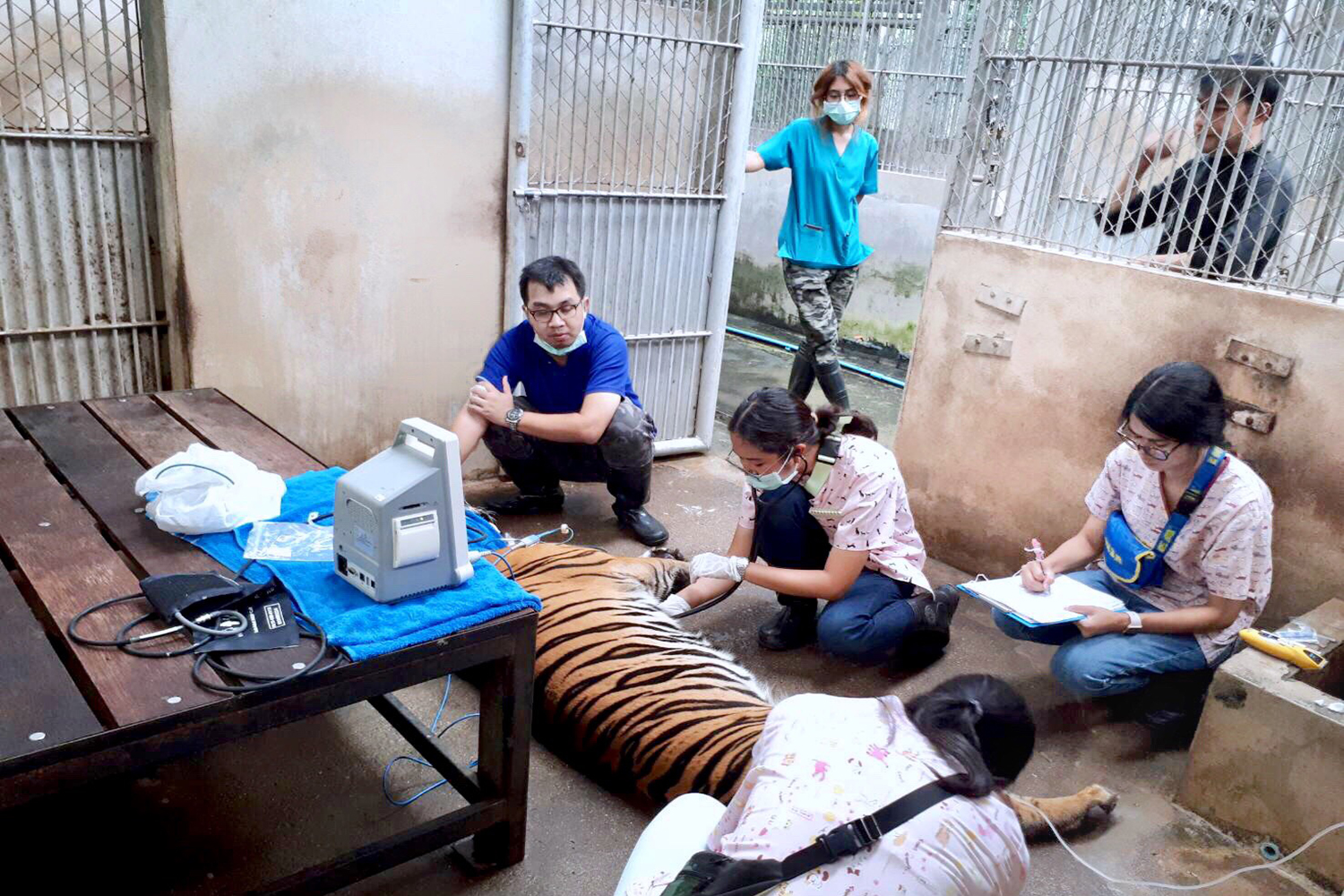
The Chiang Mai Night Safari has blamed heavy rainfall for the spread of the feline distemper virus that killed three of its tigers last month.
The deaths add to a similar tragedy, in which 86 tigers under the care of wildlife officials died over the course of three years.
Feline distemper viru can be spread through the air or by water running through the zoo compound, and moisture due to frequent rain provided the perfect conditions for the virus to rapidly strengthen after infecting the tigers, according to Anucha Damrongmani, the chief executive officer of Pinkanakorn Development Office Public Organisation, the company that owns the zoo.
The disease, also known as panleukopenia virus infection, is common among cats. Panleukopenia, which means a decrease in the number of white blood cells, destroys the animals' natural defences.
The tigers were all female -- a 15-year-old Bengal tiger, a nine-year-old Indochinese tiger and a six-year-old white tiger.
“They probably had low immunity,” Mr Anucha said, adding that the tigers were usually vaccinated against feline distemper each year.
It was difficult to trace the source of the disease, so the best way was to keep the ground dry, he said.
Since the deaths the zoo had increased preventive measures, including sprinkling lime powder around the tigers' area to kill more germs.
The zoo was able to stop the spread of the disease within a week, and the situation had returned to normal, Mr Anucha said.
Eighjty-six tigers in the care of the Department of National Parks, Wildlife and Plant Conservation earlier died of canine distemper and a respiratory disease at their shelters in Ratchaburi.
They were among 147 tigers seized from Wat Phra Luang Ta Bua Yanasampanno, a tourist-drawcard temple in Kanchanaburi where the unexplained disappearance of tigers and presence of talismans made from tigers' skin and teeth sparked a departmntal investigation. It resulted in the temple's animal exhibitions being closed down and most of its land seized.
The death of the 86 tigers mainly resulted from their poor physical health and low immunity, caused by inbreeding, the department said on Tuesday.